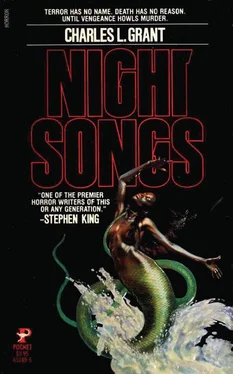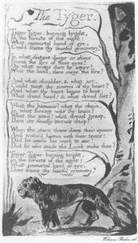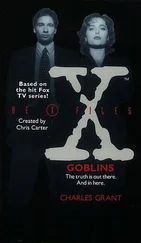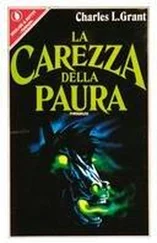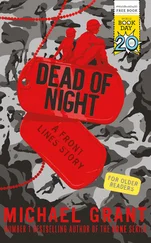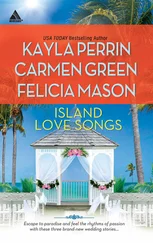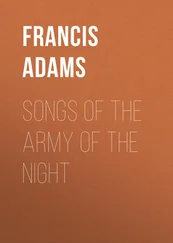Charles Grant - Night Songs
Здесь есть возможность читать онлайн «Charles Grant - Night Songs» весь текст электронной книги совершенно бесплатно (целиком полную версию без сокращений). В некоторых случаях можно слушать аудио, скачать через торрент в формате fb2 и присутствует краткое содержание. Жанр: Ужасы и Мистика, на русском языке. Описание произведения, (предисловие) а так же отзывы посетителей доступны на портале библиотеки ЛибКат.
- Название:Night Songs
- Автор:
- Жанр:
- Год:неизвестен
- ISBN:нет данных
- Рейтинг книги:4 / 5. Голосов: 1
-
Избранное:Добавить в избранное
- Отзывы:
-
Ваша оценка:
- 80
- 1
- 2
- 3
- 4
- 5
Night Songs: краткое содержание, описание и аннотация
Предлагаем к чтению аннотацию, описание, краткое содержание или предисловие (зависит от того, что написал сам автор книги «Night Songs»). Если вы не нашли необходимую информацию о книге — напишите в комментариях, мы постараемся отыскать её.
Colin Ross, twice thwarted in love, once abandoned, quit the mainland for Haven's End, a wounded soul on an idyllic island, seeking to heal his life.
But instead of peace, he is hurled into chaos. Some dark and ancient hatred, some evil force is unleashed, wreaking vengeance on the islanders, mangling the living and mutilating the dead.
And, as the piercing songs rise to meet the roaring wind, Colin Ross, against his will, is sucked into the raging storm.
Night Songs — читать онлайн бесплатно полную книгу (весь текст) целиком
Ниже представлен текст книги, разбитый по страницам. Система сохранения места последней прочитанной страницы, позволяет с удобством читать онлайн бесплатно книгу «Night Songs», без необходимости каждый раз заново искать на чём Вы остановились. Поставьте закладку, и сможете в любой момент перейти на страницу, на которой закончили чтение.
Интервал:
Закладка:
Charles L. Grant
NIGHT SONGS
For Kathy-who knows the words to the songs, sees the dark in the full moon, and listens to midnight no matter the tune
PROLOGUE
December: After
Dawn. Silent.
The narrow country road had a wet, ebony sheen, giving it depth, like water under ice, unmoving and cold. It was worn, in small patches, to the graveled bed beneath, and was shouldered by a faintly orange mixture of earth, sand, and smooth round pebbles. Shallow drainage ditches flanked it, seeming higher than the road because of brittle brown weeds that rose above the surface like clusters of huddled old men waiting to be toppled.
On both sides was a state-preserved woodland-stunted cedars and homely scrub pines, bare-limbed oaks with thick rough boles gone gray as the weather, an occasional red maple, ghostly white birches solitary and in cages. The ground was littered in tan and sable, dead leaves and dead needles thoroughly sodden from two days' rain, more mud than mulch and unruffled by the wind. Red-thorn thickets wound darkly through the gloom. Nests in high branches sat deserted and bedraggled.
The rising wind passed from a hissing to a keening, a transformation more a warning than a pause as the rain stopped and the puddles shivered and the temperature accelerated to a sharp, downward plunge.
By noon, icicle buds glinted from power lines and twigs. The road was sheathed. The cloud cover grew sharp edges that turned black and shifted.
A car, its copper-colored hood and white vinyl roof streaked with weeks of dust-turned-mud, the white-walls scraped nearly to black, made its way down the road. The left taillight was shattered, exposing a tiny bulb.
The driver wore a tan overcoat a half size too large, giving added breadth to his shoulders, added weight to his chest. The buttons were undone, and beneath was a heavy rust sweater and a faded pair of jeans. His feet were snug in blunt-toed boots into which the jeans had been tucked, boots that rose blackly to the middle of his calves. His face was in shadow, but the green of his eyes paid no heed to the darkness.
Four miles from the nearest town he stopped, gripping the wheel tightly. Across the road was a barrier, sawhorses in orange and white stripes with amber reflecting glass strung along the top. A large sign in the center warned of a dead end. He sat for several minutes, listening to the car's heater, watching the branches tremble against the wind pushing in from the sea six miles away. He wiped his palms over his chest. He glanced in the rearview mirror and felt suddenly, unpleasantly, wearily alone.
The thing to do, he thought, was to turn around and head back. He could tell the others he didn't want to risk the law's anger again. They wouldn't believe him, but they'd listen and accept; they had permitted themselves no other choice, and were too frightened to argue.
He inhaled sharply and gnawed his lower lip.
Two months before, they had scattered. Less than two weeks ago they'd returned, one by one, finding Colin where they'd left him-in a motel room overlooking the Garden State Parkway. He'd greeted them somberly, his pleasure at seeing them tempered by the demons that had driven them away… that had lured them back. As he had been lured when he learned he could not run.
So they hugged and they kissed, and finally he decided he would have to go back. Just once. Just to see.
He'd driven into Flocks before and tried to rent a boat. But the excuses were the same: too late, too choppy, all the boats in dry dock. Sensible enough, but he hadn't believed it. They'd looked at him-sideways, suspicious-and asked him about the reasons for his visit.
Then he had tried the police, but they informed him the road was closed, and no permits were being issued to wander the state land. Besides, they added, the island was unhealthy.
He avoided Flocks after that, using the back roads until he reached the forest. Once a day, every day. But this, he promised himself, was going to be the last time. Today he had decided there was no sense reliving a nightmare, once you were convinced it was only a bad dream. It had to be that way, or he'd drive himself insane.
His hand dropped to the door latch and lifted. The cold swept in, negating the heater's work, and he climbed out quickly, his hands deep in his pockets until he reached the barrier and shifted the near section to give the car room. Once on the other side, he reset the roadblock and began driving again.
The road changed, covered now with wet leaves grown crisp from the cold, sounding like thin broken glass when the tires passed over them, whispering like sighs. The stones, pebbles, and ribbons of mud reminded him oddly of aerial maps of rivers.
The car didn't move much faster than a walk.
He coughed, and realized it was much too quiet. He switched on the radio to a Philadelphia station, and grimaced at the tinny music that broke from the speakers-an upbeat version of an English Christmas carol, though the holiday itself was already four days in its grave.
The trees no longer closed to form a close horizon. They had parted like gates at some unheard command, and the slate of the clouds merged with the ocean.
For the second time he stopped and cut the ignition. The engine sputtered, raced, sputtered again and died. He shuddered at a surge of bile in his stomach, swallowed hard and closed his eyes tightly until the burning passed. A sniff, and he cleared his throat. A cough as he told himself to stop his damned stalling. Then he reached for the scuffed tan binoculars' case on the seat beside him and looped the strap over his shoulder.
The key case he left on the dashboard.
He could think of nothing else to do.
He stepped into the cold.
The wind slapped at him in desultory gusts, making him squint and hunch his shoulders, driving the pale brown hair away from his widow's peak. He checked the road behind him to be sure he hadn't been followed, then fastened the coat's top button and pulled up the high collar. With a nervous reassuring pat to the car's copper fender he walked toward the sea to the beat of his footsteps, the race of his heart.
And now that he had arrived, all nervousness ended. There was left only a compelling curiosity-bird for a snake-and the first realization that finally there was hope.
He walked slowly, capturing the scent of the sea air's bite, thinking how much he had once loved it and had pitied the poor inlanders because they never knew it except when the wind shifted strongly. A scent. And more. A promise. Of space, of power, of adventure, of dreams. A peaceable confrontation between the wistful and unconquered.
As he walked, the sea spoke to him in a language no man has ever understood well enough to set into words.
He felt almost joyful, almost serene.
And finally the road ended its uncurving drive, sliding into a gentle slope that dropped below the level of the forest floor. At the bottom was a wide apron of tire-crushed gravel, out of which extended an equally wide pier anchored in place by fat concrete pilings. To the left was a small shed, its door canted open on one rusted hinge, the windows on either side smashed inward and gaping. A dead gull lay muddied on a curl of roping. A pair of oars was propped against the leeward wall, fan tips jammed under the tin-roof eaves. A sign had been bolted to what looked like a harpoon half buried in the ground. In pale blue lettering was a single word: Ferry. There was no price mentioned; Colin knew it was one dollar.
He stood calmly at the top of the slope, pulling on leather-palmed, black woolen gloves. He did not look at the dock yet or at the water, much darker than the sky lowering above it. The waves, because of the bottom's configuration and the obstacles farther out, were low and unbroken save for occasional whitecaps raised by the wind. It was more a bay here than an ocean, a masque for the horizon. When he was ready, he looked steadily across the two miles of open water.
Читать дальшеИнтервал:
Закладка:
Похожие книги на «Night Songs»
Представляем Вашему вниманию похожие книги на «Night Songs» списком для выбора. Мы отобрали схожую по названию и смыслу литературу в надежде предоставить читателям больше вариантов отыскать новые, интересные, ещё непрочитанные произведения.
Обсуждение, отзывы о книге «Night Songs» и просто собственные мнения читателей. Оставьте ваши комментарии, напишите, что Вы думаете о произведении, его смысле или главных героях. Укажите что конкретно понравилось, а что нет, и почему Вы так считаете.
